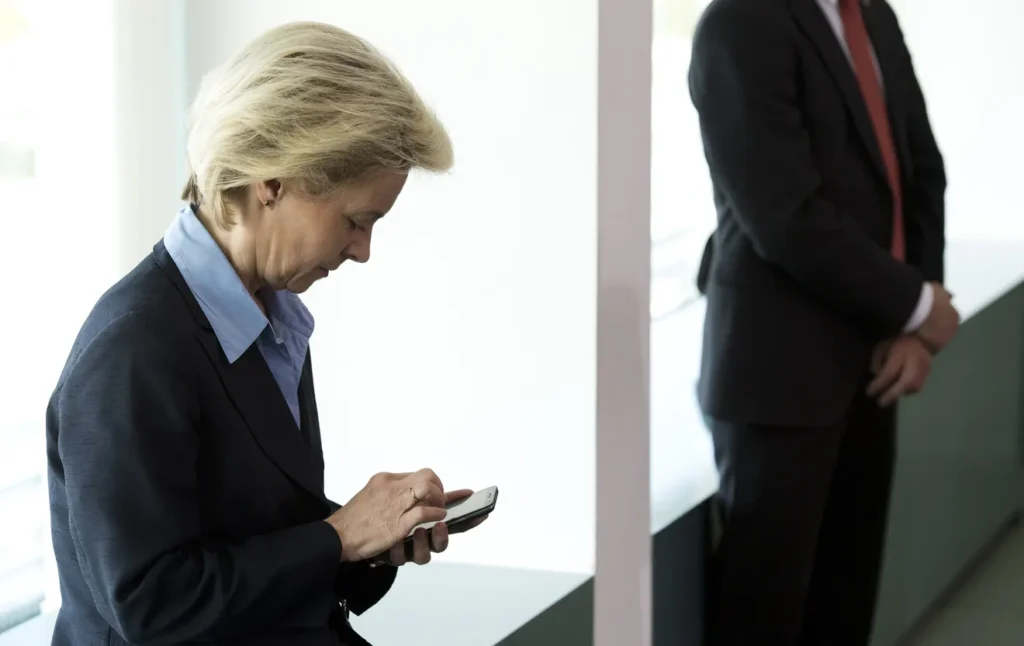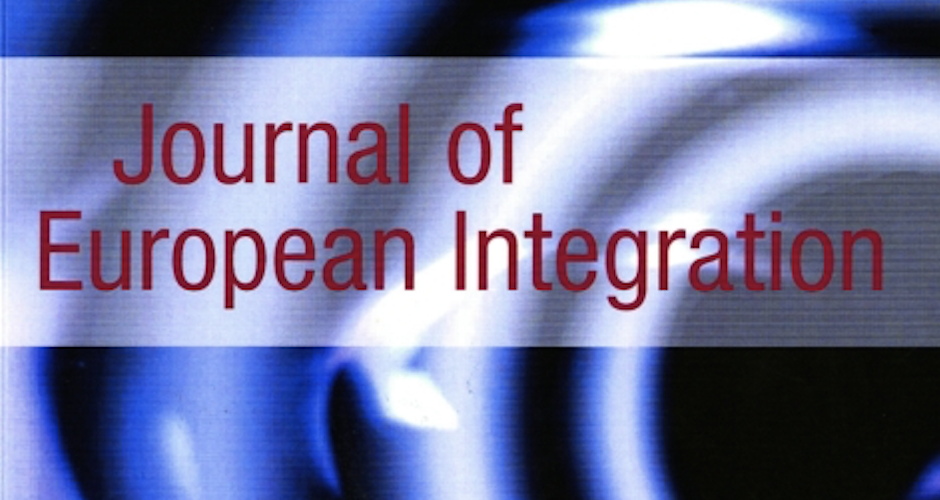Text messages that apparently sealed a deal between Commission and Pfizer early 2021 are slowly becoming the centre of broader transparency questions.

‘Text messages not relevant content’
Last week, the European Parliament received written answers to questions asked by the liberal MEP Sophie in ‘t Veld (Renew) concerning the Commission’s refusal to disclose text messages that Commission President Ursula Von der Leyen had exchanged with Pfizer CEO Albert Bourla pursuant to the access to documents regulation.
The answers, provided by Commission Vice-President for Transparency Vera Jourová, set out the Commission’s position that the text messages in question were not documents under the definition of Regulation 1049/2001 on access to documents. According to Jourová:
Due to their short-lived and ephemeral nature, text and instant messages are not meant to to contain important information relating to policies, activities and decisions of the Commission; they therefore neither qualify as a document subject to the Commission record-keeping policy nor are they falling within the scope of Regulation 1049/2001 on access to documents.
The answer drew the ire of In ‘t Veld, who, upon receiving the written response, posted a tweet calling for the European Ombudsman to speak out on the matter. The Ombudsman is currently already investigating the rejected access request, so In ‘t Veld should receive her answer in due time.
In ‘t Veld suggested the Commissioner’s response constituted a case of circular reasoning, in the sense that it holds ‘it may not be, therefore it isn’t’.
Indeed, in light of the formal definition of a document laid down in Regulation 1049/2001, the Commission’s position strikes as curious. According to article 3(a) of the regulation, a document must be understood as
…any content whatever its medium (written on paper or stored in electronic form or as a sound, visual or audiovisual recording) concerning a matter relating to the policies, activities and decisions falling within the institution’s sphere of responsibility.
Text messages are content stored in electronic form, and the requested text messages form the preparatory discussions for a decision that the Commission took not long after they were sent. The part about short-lived or ephemeral contents being excluded was added by the Commission’s legal service, albeit with reference to the Commission’s internal archiving rules, but in apparent contravention of Regulation 1049/2001.
The slowly escalating question of non-documents
The question of transparency of SMS and other digital messages sent or received by top EU officials is not a new one. Already in 2019, activists requested access to such content held by then-European Council President Tusk, arguing that “the right of public access to documents should be consistent with technological development”. In response to their two separate requests, the European Council and Council provided highly similar responses: Tusk’s text messages were categorically considered “ephemeral or short-lived”, were therefore not archived, and thus not “held by” the institution. An investigation by the European Ombudsman endorsed that reading against the position of the complainants.
The institution’s creative reading of Regulation 1049/2001 at the time prompted the Meijers Committee of legal experts in EU law to call on the incoming German Presidency to initiate a discussion towards revising this position. However, it was not picked up more widely.
This changed when, around the same time, Von der Leyen drew attention by secured the EU a favourable vaccine deal through ‘text message diplomacy’ with Pfizer boss Boula. This story was picked up by the New York Times, which in April 2021 featured a story entitled “How Europe Sealed a Pfizer Vaccine Deal With Texts and Calls“. At the time, the Commission, eager to own this success after a string of bad luck and late responses, widely trumpeted its intelligent and resolute handling of the vaccine procurement effort. Subsequently however, Von der Leyen’s team deleted all tweets prior to 15 June 2021.
The New York Times article prompted Austrian investigative journalist Alexander Fanta to make an access request for the text messages mentioned in its story. The Commission decision, in June 2021, to turn down his final appeal went around in Brussels civil society circles as further evidence of the Commission’s half-hearted commitment to transparency.
The issue was picked up in a highly critical article published November in the German newspaper Der Spiegel, which found further evidence of systematic non-disclosure and even deletion of non-document information vessels such as emails, uncovered by Dutch tax law researcher Martijn Nouwen, who reportedly “fell of [his] chair” when he found out about the Commission’s policy in the matter. The article also cites EU legal scholar Alexander Thiele who described the policy as “more than legally questionable”.
In a reaction to the Open Government in the EU Blog, the European Ombudsman’s office highlights the difference between the Tusk and Von der Leyen cases. While the European Council argued that it did not hold said texts, in principle accepting them as falling within the scope of Regulation 1049/2001, the Commission’s decision goes further by declaring text messages “not documents”, and therefore unrequestable under the right of access to documents. In June 2021, the European Ombudsman opened an inquiry into the various EU institutions and agency’s archiving practices of emails and text messages. This inquiry is still ongoing.
A subsequent high-profile conference on the future of transparency in the digital age, held by the European Ombudsman, brought up the issue again. On that occasion, investigative journalist Peter Teffer voiced his surprise about the fact that the transparency of Von der Leyen’s text messages was apparently being problematised, as in his view, the existing legislation is essentially technology neutral, meaning that deleting a text is functionally the same as deleting an email or shredding a document. This legal interpretation was largely endorsed by EU law professor Päivi Leino-Sandberg.
Short lines, personal contacts, zero visibility
All this prompted In ‘t Veld MEP to submit her questions to the Commission that same week. She was quoted in the Dutch press saying:
Commission President Von der Leyen entered office promising transparency. She does not live up to that promise. What’s more, she excludes an entire category of communication from the transparency rules in force. Commissioners must be able to enjoy some discretionary space, but here any possibility of democratic control over the executive is repressed. That is unacceptable. […] In the Netherlands, this would have exploded.
In an uncanny twist, the current atmosphere of questions which Von der Leyen now finds herself in is in fact highly similar to a scandal she became enmeshed in as Germany’s defence minister. At the time, she became subject of intense parliamentary scrutiny after it emerged that the phones she had used to exchanges messages with private contractors for the ministry had been wiped clean, amid allegations of corruption. Von der Leyen denied all wrongdoing, and her subsequent move to Brussels saved her from further political scrutiny.
Apart from putting into question the effective functioning of EU access to documents law, the above-described saga is also telling of the EU’s crisis management. Some of the tendencies of EU responses to unexpected events have led EU scholars to express worries about the extent to which informal decision making and personality politics have overtaken tried and tested institutions and procedures.
In a recent academic article, Jonathan White analyses what he describes as the “de-institutionalisation of power” in the EU context, which he argues is characterised by the concentration of power in individuals, the informal collaboration of leaders beyond institutional boundaries, and the reliance on personal (charismatic) authority of leaders. Relying on these de-institutionalised methods, they justify their course of action as necessary in difficult and unpredictable times. However, as White holds, such methods of decision making come at the expense of structures for institutionally embedded democratic accountability, and thus the ability to identify, discuss, and correct mistakes made by the executive.
Arguably, Von der Leyen’s secretive text message-based vaccine procurement diplomacy, initially widely presented as a success, is a case in point.
This story was updated to include a reaction from the European Ombudsman highlighting difference between the request for Tusk’s and Von der Leyen’s text messages, and bringing attention to a further European Ombudsman inquiry.




8 replies on “Controversy over Von der Leyen’s secret text exchanges with Pfizer CEO”
[…] their instant messages, while the European Commission is withholding texts that its president Ursula von der Leyen exchanged with Pfizer’s chief Albert Bourla before buying 1.8bn vaccine doses. Vera Jourova, the […]
[…] their instant messages, while the European Commission is withholding texts that its president Ursula von der Leyen exchanged with Pfizer’s chief Albert Bourla before buying 1.8bn vaccine doses. Vera Jourova, the […]
[…] their instant messages, while the European Commission is withholding texts that its president Ursula von der Leyen exchanged with Pfizer’s chief Albert Bourla before buying 1.8bn vaccine doses. Vera Jourova, the […]
[…] mensajes instantáneosmientras que la Comisión Europea conserva los textos que es su presidente Úrsula von der Leyen reemplazado por el director ejecutivo de Pfizer, Alberto Bourlo, antes de la compra 1.800 millones […]
[…] to delete their instant messages, whereas the European Fee is withholding texts that its president Ursula von der Leyen exchanged with Pfizer’s chief Albert Bourla earlier than shopping for 1.8bn vaccine doses. Vera […]
[…] their instant messages, while the European Commission is withholding texts that its president Ursula von der Leyen exchanged with Pfizer’s chief Albert Bourla before buying 1.8bn vaccine doses. Vera Jourova, the […]
[…] their instant messages, while the European Commission is withholding texts that its president Ursula von der Leyen exchanged with Pfizer’s chief Albert Bourla before buying 1.8bn vaccine doses. Vera Jourova, the […]
[…] to delete their instant messages, whereas the European Fee is withholding texts that its president Ursula von der Leyen exchanged with Pfizer’s chief Albert Bourla earlier than shopping for 1.8bn vaccine doses. Vera […]